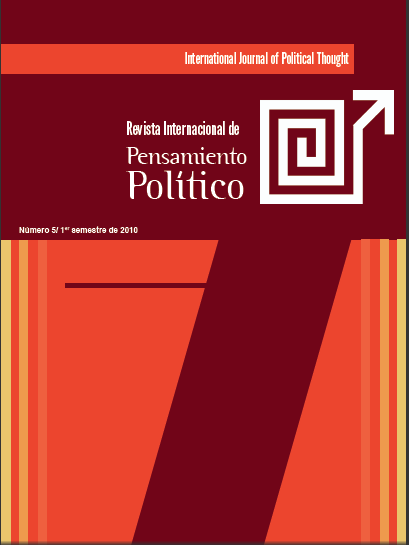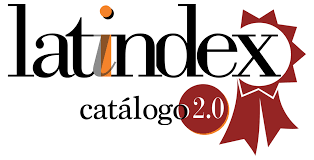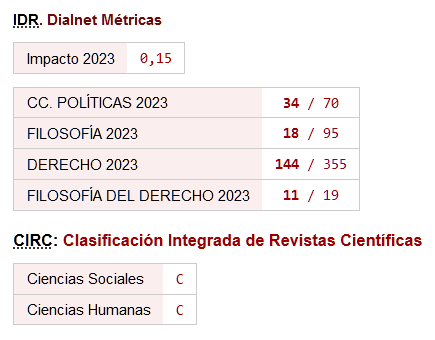Evolución reciente de la participación política y social en la mujer marroquí: un análisis a través de la encuesta mundial de valores (2001-2007)
DOI:
https://doi.org/10.46661/revintpensampolit.1859Palabras clave:
Participación política, Cambio social, Sociología del género, Mujeres, MarruecosResumen
En el ámbito del mundo islámico se está gestando un cambio social en las mujeres que tiene en Marruecos a uno de los países de vanguardia. Para la consumación del proceso resulta esencial la aparición de la mujer como actor relevante en las instituciones públicas, y acaparando puestos relevantes en participación política y asociacionismo, ya que de esta forma está empezando a hacer constar sus deseos e intereses. Se trata de un cambio determinante que deberá ser promovido y culminado por las propias mujeres, tal y como se ha dado con anterioridad en los países pioneros en la sociedad occidental. Para calibrar los efectos y al mismo tiempo causas de tan importante proceso, hemos comprobado la percepción de si mismas y su sociedad de las propias mujeres marroquíes recurriendo a la perspectiva de los valores. Para ello hemos explorado los resultados de la Encuesta Mundial de Valores (EMV) en Marruecos (datos de 2001 y 2007) para obtener así una visión longitudinal que nos facilite el análisis del reciente cambio social en las mujeres y su participación política. Asimismo, hemos contrastando esta información con los testimonios obtenidos en investigaciones cualitativas paralelas, que realizamos para la Agencia Española de Cooperación Internacional al Desarrollo (AECID) en el bienio 2007- 2008.
-------------------------------------------------------------------
In the framework of the Islamic world, women are changing, and in this context, Morocco is one of the leading countries. For this process to come about, it is of fundamental importance that women become actors in public institutions, and that they become involved political participation and associations. This is the key change that will have to be promoted and achieved by women as it had previously occurred in Western societies. To evaluate, both the effects, and the causes of this important process, we have verified the perception that women have of themselves and of their society by reference to the perspective of the values. We have explored the results given by the World Values Survey (WVS) in Morocco (data of 2001 and 2007) to obtain a longitudinal view that facilitates the analysis of the recent change of incorporation of women to society and of their political involvement. We are completing this information with the testimonies from parallel qualitative investigations prepared for the Spanish Agency of International Cooperation (AECID) in 2007-2008.
Descargas
Citas
AA.VV. Cincuenta años de Desarrollo Humano. Perspectiva 2025 (informe). «El Porvenir se construye y lo mejor es posible», RDH50, Marruecos, 2006. p. 245.
Alberdi, I, Escario, P. y Matas, N. (2000): Las mujeres jóvenes en España. Fundación La Caixa, Colección Estudios Sociales, número 4.
Alcalde, R. (2002) «Las mujeres marroquíes en Cataluña: entre la transgresión y el cambio» en Revista Catalana de Sociología, 18. pp. 27-44.
Chafai, L (2007): «Las mujeres, sujeto de marginalización en Marruecos» en Mujeres en red. Abril. Madrid.
Forti, R. (2002): «La identidad de la mujer musulmana» en Observatorio de conflictos, nº 196. Diciembre. p. 3.
Lerner, G. (1990): La creación del patriarcado. Barcelona: Crítica. p 23.
Mernissi, F. (1999): El harén político: el profeta y las mujeres. Madrid: Ediciones del Oriente y del Mediterráneo.
Ramírez Fernández, A. (2004): «¿Oriente es Oriente? Feminismo e islamismo en Marruecos». Revista internacional de sociología, nº 39, pp. 9-33. DOI: https://doi.org/10.3989/ris.2004.i39.247
Soriano Miras, R.M. y Santos Bailón, C. (2002): «El perfil social de la mujer inmigrante marroquí en España y su incidencia en la relación intercultural». Papeles de Geografía, nº 36, pp. 171-184.
Soriano Miras, R.M. (2004): «Autopercepción subjetiva de la inmigración: la mujer marroquí». Aula intercultural; p. 19; FETE-UGT; disponible en .
Troyano Pérez, J. F. (Coord.) et al (2007): La identidad de género de la mujer marroquí. Informe Institucional. Proyecto PCIMediterráneo; Agencia Española de Cooperación Internacional al Desarrollo.
Troyano Pérez, J. F. (Coord.) et al (2008): La identidad de género de la mujer marroquí. Nuevas perspectivas. Informe Institucional. Proyecto PCIMediterráneo; Agencia Española de Cooperación Internacional al Desarrollo.
Descargas
Publicado
Cómo citar
Número
Sección
Licencia
Derechos de autor 2016 Revista Internacional de Pensamiento Político

Esta obra está bajo una licencia internacional Creative Commons Atribución-NoComercial-CompartirIgual 4.0.
Política de acceso abierto
Se permite el acceso libre y abierto de cualquier interesado a todos los contenidos de los números de la revista, sin costo alguno, pudiendo imprimir y trasladar todos los artículos, con la única condición de precisar la fuente y la autoría.
La revista: a) no cobra a las autorías costes por el procesamiento de los artículos ni por el envío de los mismos, b) mantiene el copyright para los autores sin restricciones, c) facilita a los autores conservar sus derechos de publicación sin limitaciones.
La Revista Internacional de Pensamiento Político es una obra original del Laboratorio de Ideas y Prácticas Políticas de la Universidad Pablo de Olavide. Todos los artículos incluidos en la Revista son obra original de sus respectivas autorías. Esta Revista se ofrece libremente a la comunidad científica y académica sin coste alguno y libera los contenidos de acuerdo a la licencia "Reconocimiento-NoComercial-CompartirIgual 4.0 CC BY-NC-SA" del proyecto Creative Commons dispuesta en la siguiente url: https://creativecommons.org/licenses/by-nc-sa/4.0/legalcode
Si deseas traducir o compilar alguno de los artículos aquí disponibles, por favor, ponte en contacto













